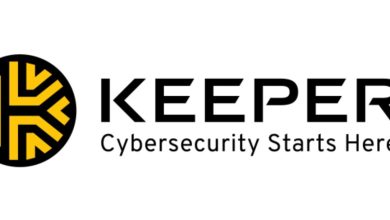HID Innovates Access Control Solution with Mobile Access

by Prabhuraj Patil, Commercial Director, Physical Access Control Solutions, ASEAN and India Subcontinent at HID

The rise of mobile IDs is significantly impacting various industries, from corporate real estate and educational campuses to government and healthcare facilities. These mobile solutions support a range of applications beyond physical access, including secure login to networks and computers, user verification for system control, and even secure payments.
Let me talk more about the rising trend of mobile IDs in Asia Pacific (APAC), issues surrounding the adoption of mobile IDs, and how enterprises can leverage mobile IDs to sharpen their competitive advantage.
-
What are mobile IDs and why are they important?
Mobile IDs are digital credentials stored on mobile devices that authenticate and verify the identity of a user through secure means. They are crucial in today’s digital age because they offer a more convenient, secure, and flexible alternative to traditional forms of identification such as physical ID cards or passwords.
-
What are the key trends in mobile IDs today?
Organisations are rapidly adopting mobile-based access solutions for physical and digital entry, driven by the convenience and enhanced security they provide over traditional methods.
With security threats growing, multi-factor authentication or MFA has become more important. Mobile devices facilitate easy implementation of MFA by combining something the user has (their mobile device) with something the user knows (a PIN) or is (biometric data). With mobile devices practically ubiquitous, momentum continues to build around the use of these devices in support of identity.
According to the 2024 State of Security and Identity study conducted by HID, two-thirds of organisations (64%) reported some level of mobile ID deployment, with that number expected to increase to 79% within the next five years. Industry partners are optimistic in their outlook, stating that 94% of their customers will have deployed mobile IDs.
Mobile ID authentication offers enterprises significant advantages and benefits, combined with the convenience and enhanced data available from smartphones and devices.
-
What challenges do mobile identities face?
Despite the inherent security features of mobile IDs, such as biometrics and encryption, they are still susceptible to various security threats. These include phishing attacks, malware, and man-in-the-middle attacks that can compromise mobile devices. Additionally, the security of the device itself, if not adequately maintained (e.g., through regular updates), can become a weak link in the security chain.
Mobile IDs require the collection, storage, and processing of sensitive personal data. Managing this data in compliance with global privacy regulations like GDPR and HIPAA is a significant challenge.
Mobile ID solutions must be compatible across different platforms, devices, and systems. The lack of standardisation can lead to interoperability issues, making it difficult for identity solutions to be universally applicable. This is especially challenging in environments that use a mix of old and new technology.
Navigating the complex landscape of legal and regulatory requirements across different jurisdictions can be daunting. Mobile ID solutions must ensure compliance with a myriad of laws and regulations concerning security, data protection, and privacy, which can vary significantly from one region to another.
Addressing these challenges requires a concerted effort from technology developers, regulatory bodies, businesses, and end users to ensure that mobile IDs are secure, private, accessible, and effective in various applications.
-
How does HID ensure the security and reliability of its mobile ID solutions?
HID utilises strong encryption methods to protect data transmitted between devices and systems. This includes using industry-standard protocols such as AES (Advanced Encryption Standard) and TLS (Transport Layer Security), which safeguard data against interception and unauthorised access.
To enhance security beyond traditional usernames and passwords, HID incorporates MFA in our mobile ID solutions. This approach often includes something the user knows (a password or PIN), and something the user has (a secure mobile device or token) to significantly reduce the risk of unauthorised access.
Understanding the dynamic nature of cybersecurity threats, we ensure our mobile ID solutions are regularly updated with the latest security patches and enhancements. This proactive approach helps safeguard systems against new vulnerabilities and ensures the solutions remain compliant with evolving security standards.
HID adheres to stringent industry standards and regulatory requirements, including ISO standards, GDPR, and CCPA, to ensure our solutions meet the highest security and privacy specifications. Compliance is continuously monitored and updated in response to new legal and regulatory developments.
-
How can enterprises in APAC leverage mobile IDs to sharpen their competitive advantage?
Security is a top priority across all industries. Mobile IDs offer enhanced security features such as encryption, and secure communication protocols. By adopting these technologies, businesses can protect sensitive information and reduce the risk of data breaches, thus complying with stringent regional regulations like Singapore’s Personal Data Protection Act (PDPA) or India’s Information Technology Act. This commitment to security can differentiate enterprises in markets where consumers are increasingly concerned about privacy and data protection.
Mobile IDs can significantly streamline various business operations, including access control, employee time tracking, and onboarding processes. By replacing traditional methods with more efficient mobile-based systems, enterprises can reduce administrative overhead, lower costs, and accelerate workflows. This efficiency not only boosts productivity but also enhances the scalability of operations, allowing businesses to adapt quickly as they grow.
In sectors such as retail, banking, and hospitality, mobile IDs can be used to create smoother and more personalised customer experiences. For instance, customers can use mobile IDs for quick check-ins at hotels, secure payments, and personalised interactions based on their preferences and past behaviours. These seamless experiences can increase customer satisfaction and loyalty, which are crucial elements in a competitive market.
With the rise of remote work, particularly accentuated by the COVID-19 pandemic, mobile IDs enable secure remote access to company resources. Employees can use their mobile devices to securely log into networks, access company data, and even verify transactions or operational commands, all while maintaining robust security standards. This flexibility can be a significant advantage in attracting and retaining top talent who prefer flexible working conditions.
By adopting mobile IDs, enterprises in APAC can not only enhance their internal operations but also strengthen their market positioning, customer relations, and compliance posture.
HID’s implementation of high-profile projects like employee badge integration with Apple Wallet and Google Wallet will be a key differentiator in the region’s competitive and rapidly evolving economic landscape. Organisations in APAC that have benefitted from HID’s mobile access control solutions include the CGS-CIMB in Singapore, Charter Hall in Australia and the Civil Aviation Training Center (CATC) in Thailand.




